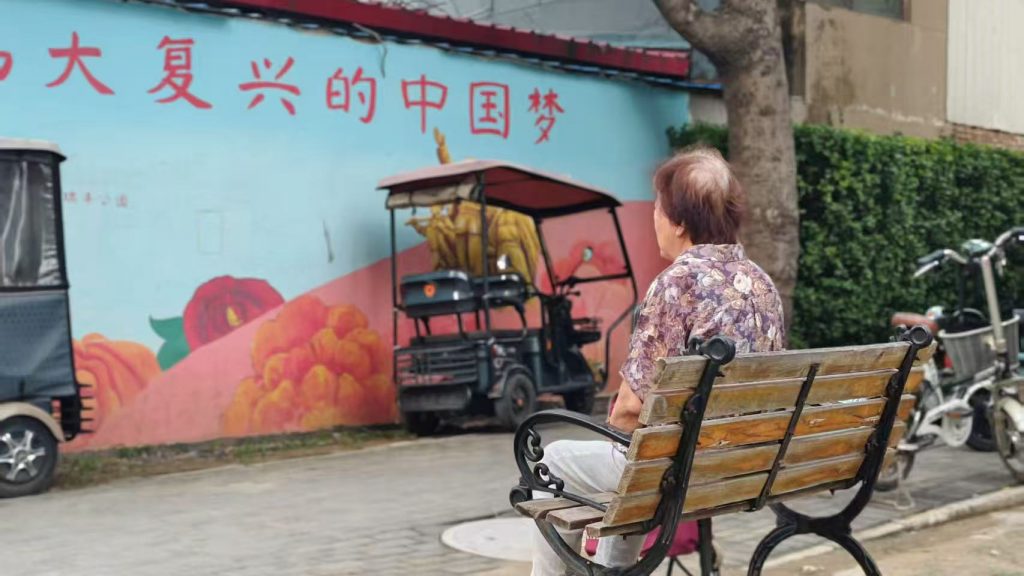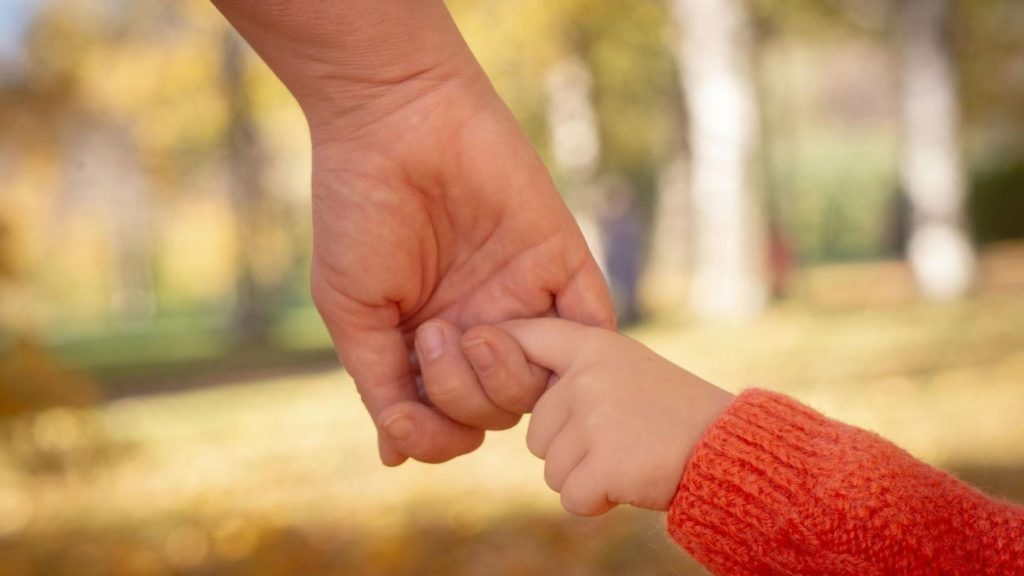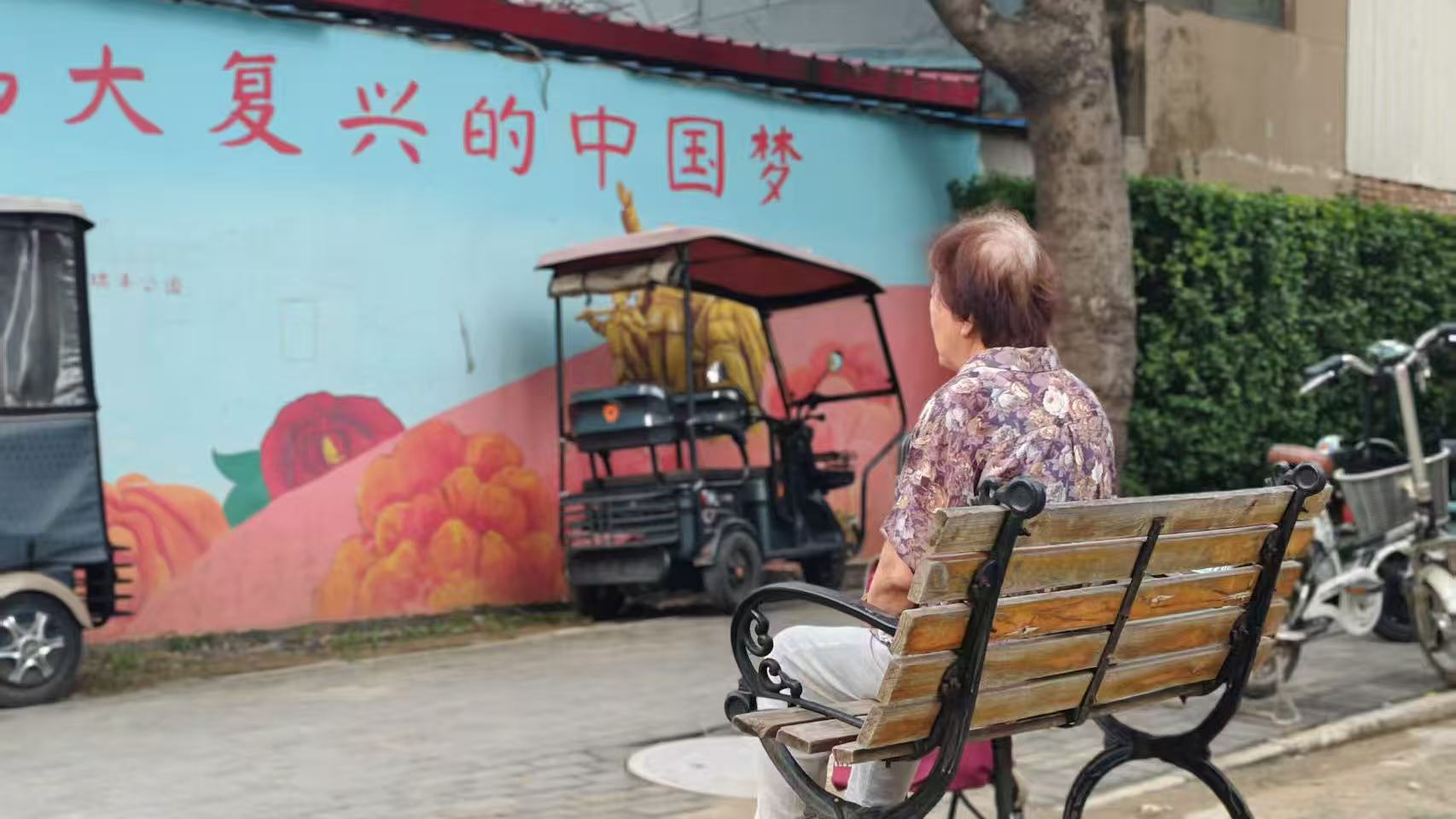As young people migrate to cities in China, distance grows between rural family members, and traditional ties are being reshaped. What happens to the bonds between generations?

At dawn, Qin Mei steps out for a walk around the village square. Back home, she cooks breakfast for her husband before tending to the day’s chores, feeding chickens, watering vegetables and pulling weeds. In her spare time, she lingers at the village entrance with other elderly women, chatting to pass the time.
At 61, Qin Mei lives in a rural village in Shandong Province. She had worked in a small-town restaurant for years, until a surgery last year forced her to stop. Now, without the burden of work, she has more time for herself. She said life is easier now, but it also feels a little empty.
“I have a son and a daughter,” Mei says. “My son studied in Wuhan and stayed there after graduation. He’s so busy with work that he only comes back every two years. My daughter lives in Jinan, about a three-hour drive away. Her baby is just one year old, so she doesn’t have much time to visit.”
“During the Mid-Autumn Festival and Spring Festival, they give me some money. If they find suitable clothes, they will buy them online and send online to me,” she says. But for Mei, money and gifts are less important than family time. What she looks forward to most is the Spring Festival, when her children return home, gather around the table for New Year’s Eve dinner, and share stories about their lives.
Families like Mei’s are common in rural China. Cities offer better jobs and resources, pulling young people away from their hometowns to study, work, and eventually settle. This shift has led to widespread intergenerational separation, and rural families are increasingly moving from extended to nuclear structures.
Both the working-age and permanent populations in rural China have been steadily shrinking. According to the Seventh National Census of China in 2020, the rural working-age population aged 16 to 59 was 285 million, down 142 million from 2010. By the end of 2020, the rural permanent population was just over 500 million, almost 300 million fewer than that of 2000.
Li Yu, a researcher who has conducted field studies in rural Anhui says, the migration of young people is a common phenomenon in the countryside. “Many young people leave the countryside for the big cities, where there are more jobs and resources. They might come back once a year at Spring Festival,” Yu says.
As more young people leave the countryside, rural families are becoming more nuclear. It is not only in family structure but also in how parents and adult children relate to each other. Mei says her daughter, after moving away, has been exposed to many new things. She is more independent now and has her own opinions.
“After the college entrance exam, my daughter wanted to dye her hair pink. I didn’t agree, I thought it wasn’t appropriate for a student,” Mei says. “After she went to university in another province, she sent me a photo of her pink hair and asked if it looked good.”
Mei realizes the gap between her and her daughter was widening. Her daughter rarely shares her daily life and doesn’t take her advice on everything anymore. “It feels like I was raising a little bird, and when it grew up, it escaped from the cage and flew farther and farther away,” she said.
As the distance between parents and children grows, differences in lifestyle and values grow wider. The parent generation, shaped by traditional customs and life experience, tends to be more conservative. By contrast, young people in cities are exposed to new cultural and social ideas, and place greater emphasis on self-expression and individual choice.
There are clear differences in outlook between the younger generation and their parents, from taste and spending habits to attitudes toward life. Mei says she and her daughter often have disagreements in daily life. For example, she cannot understand the high cost of infant classes and feels it is unnecessary to spend thousands of yuan a month on early childhood education.
“She said I didn’t understand anything, that my thinking was decades out of date,” Mei says. “The most painful moment was when she blocked me on WeChat and refused to speak to me.”
Recent research by Bo Xiong of Zhongnan University and Renbing Shi of Huazhong University shows that differences in lifestyle and experience between generations are widening, with fewer commonalities and sharper divides. The study found the trend especially pronounced in rural areas, where young people working in cities grow increasingly different from parents who remain in the countryside.
When children gradually surpass their parents in economic, intellectual and social resources, the balance between them shifts. Parents are no longer the sole source of guidance but start to care more about their children’s feelings and attitudes.
“I try my best to understand her views and get along with her like a friend,” Mei says. “once told my daughter I could climb mountains. She didn’t believe me, since my legs aren’t in good condition. Then I showed her a video of a climbing-assistance robot. It fastens two skeletal supports to the legs, making climbing much easier. She said I knew quite a lot.”

Two years ago, Mei travelled with her husband to Wuhan to visit their son. At the hotel and airport, she saw all kinds of robots and was fascinated. Afterwards, she went online to learn what they were used for and how they worked.
“Society has been changing so rapidly in recent years. I go online to learn new things so that I can keep up and have topics to share in conversation with my children,” Mei says.
Parents of those born after 1965 are moving from tradition to modernity, having lived through the shift from a planned economy to a market economy. They can be both traditional and conservative, also modern and open-minded. In today’s era of rapid technological change, they strive to balance old and new values and to keep pace with the times.
“I learned cooking tips and how to match ingredients on Douyin (China’s version of TikTok). I have tried new fillings for dumplings and steamed buns. I also watch health videos to learn what is good for the body, how to eat healthily, and how to cut down on sugar and salt.” Mei says. “Managing your own life and taking good care of yourself means not adding to your children’s burden.”
In contemporary Chinese families, parents and children often live apart due to work or study. Geographic distance reduces chances for companionship, and communication between generations is often limited.
Xu Jie, 35, an only child, settled in the city after graduating from university. Her parents remain in a rural area of Liaoning Province, about a 90-minute drive away. But even in the same city, she finds it hard to keep up with her parents’ lives.

Jie only learned afterwards that her mother had been in a minor accident while riding an electric scooter. “She mentioned it casually to me on the phone. By then, my parents had already taken care of everything,” Jie says. “I really wanted to go home to see her, I really wanted to go back to see her, but I couldn’t take leave from work.”
As an only child, Jie struggles to balance family and work. “Three years ago, my father developed a large nodule in his lung and needed surgery and hospitalization. During that time, I had to care for him while also keeping up with my job,” she says.
Jie says that period was incredibly stressful. Besides caring for her sick father, she also had to deal with her own troubles. As an only child, she had no one to support her or share the burden. But she needs to manage her emotions, presenting herself positively each day. She didn’t want her parents to worry about her.
According to the Chinese Academy of Social Sciences , there were about 180 million only children in China as of 2023, most of them born in the 1980s, 1990s and 2000s. As this generation enters adulthood, many of their parents are growing old. Their parents facing the inevitable decline in health and even greater risks of chronic diseases.
Professor Chen Yan of Southwest University for Nationalities says that one-child families are nuclear, and parents have limited resources for elderly care. With the high mobility of China’s young workforce, children often live apart from their parents. It is creating significant challenges in providing care for parents.
According to a survey of only children conducted by Feng Xiaotian of Shenzhen University, most parents of the first generation of only children are now in early old age. But within the next decade, as they move into their 70s and 80s, one-child families will face greater risks and pressures in elder care.
Jie has gradually realized that her parents are ageing. Her has noticed that her father, 65, hair and beard are gradually turning grey. “My father has developed some health problems. The medical report showed that he has mild diabetes and gallstones,” Jie says. “My mother complains that climbing stairs is exhausting and that her legs feel weak after walking too much. Her eyesight is also deteriorating, and she now needs reading glasses to see clearly.”
According to the National Health Commission , about 190 million elderly people in China were living with chronic diseases in 2023. Among those aged 60 and above, three-quarters suffer from at least one such condition, such as hypertension, diabetes or cataracts.
As China’s population ages and life expectancy rises, chronic illness is becoming an increasingly urgent health challenge for families. Especially for only children, the burden of caring for their parents is even heavier.
To make it easier to care for her parents, Jie once thought about bringing them to live with her. “But they don’t want to come,” she says. “They have many acquaintances in the village. They often sit together chatting and drinking tea, and life there feels much freer than in the city.”
“I have even thought about going back to the village, because I feel my parents need me more and more. But there are too few job opportunities there,” Jie says.
Traditionally, elderly care in China has centered on the family, with children expected to support their parents through daily care and long-term companionship. But with growing population mobility and changing social values, this model of intergenerational support is gradually shifting.
With the limits of distance, smartphones have become a crucial tool for maintaining intergenerational ties and supplementing care. “A few days ago, there was a leak in our pipes, and my mum called me to help find a repairman,” Jie says. “She loves watching Douyin and often sees some workplace videos. She shares them with me as advice on how to handle people and situations.”
For parents, emotional companionship is much more important than material support. Jie has gradually noticed a shift in the balance of power between her and her parents. They were once the strong people she relied on, but with age growing, they have softened and increasingly rely on her to make decisions.
“I never hold back my praise. My mother often learns new cooking techniques online, and whenever she makes a new dish, I encourage her,” Jie says. “My father enjoys growing vegetables in his yard back in the village, and I often praise him for how well they turn out.”
As parents grow older and no longer play a central role in society, they crave greater support and recognition. For many parents, the care and companionship of their children is the most important source of emotional support.
Jie says she is trying her best to balance work and family. “I feel like I am gradually becoming the role my father used to play. I really cherish the moments with my family now. I try to create a happy atmosphere at home and hope my parents won’t feel so lonely,” she says.
